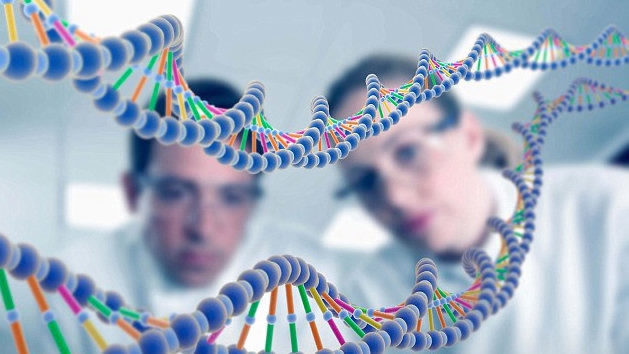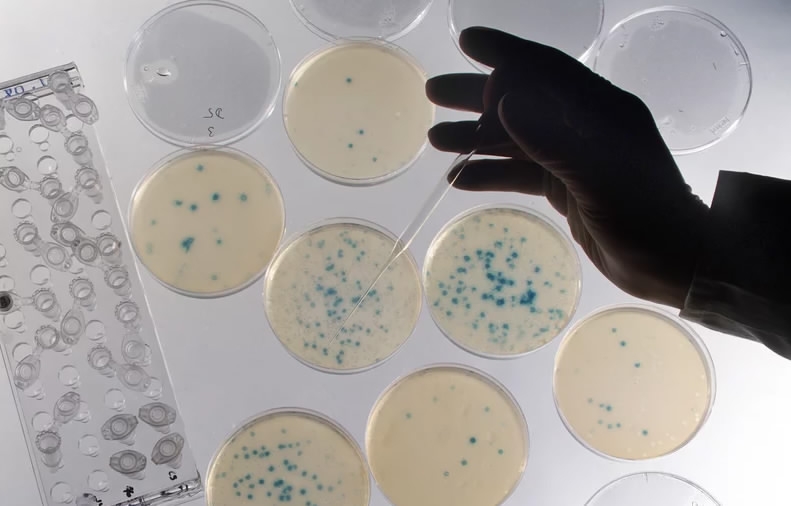
Health
22:30, 14-Nov-2017
Biotech firms race to recruit good bugs in war on cancer
CGTN

Biotech companies are competing to develop medicines using “bugs as drugs” to fight cancer, building on the latest scientific findings that patients with high levels of good gut bacteria are more likely to respond to modern immunotherapy.
Certain bacteria seem to help in cancer by priming immune cells and smoothing the path for immunotherapy drugs known as PD-1 drugs that work by taking the brakes off the immune system.
Seres Therapeutics hopes to become the first company to leverage this discovery through a collaboration with the MD Anderson Cancer Center in Texas and the Parker Institute for Cancer Immunotherapy that will see its microbe medicine tested in a clinical trial.

The biotech industry is trying to develop new medicines to fight against cancer./AP Photo
The biotech industry is trying to develop new medicines to fight against cancer./AP Photo
MD Anderson scientists were among two groups of cancer researchers who reported on the benefits of good gut microbes in the journal Science earlier this month.
The work underscores the importance of the microbiome – the vast community of microbes living inside mankind – which has been linked to everything from digestive disorders to depression.
Seres Chief Executive Roger Pomerantz said the aim was to start the randomized, placebo-controlled clinical trial in metastatic melanoma in 2018, evaluating the impact of giving a newly developed microbiome drug alongside a PD-1 therapy.
Beyond the gut
Other companies are competing hard.
Like Seres, some are also eyeing the new opportunity in cancer, as microbiome science moves beyond the initial focus on gastrointestinal conditions like C. difficile, ulcerative colitis and inflammatory bowel disease.

Biotech industry is trying to develop new medicines to fight against cancer./US Today Photo
Biotech industry is trying to develop new medicines to fight against cancer./US Today Photo
Vedanta Biosciences, another US biotech firm that is an affiliate of PureTech Health, plans to file for approval to start a clinical trial in immune-oncology in 2018, while Synlogic is also working on experimental cancer therapies.
French biotech company Enterome, meanwhile, is working with Bristol-Myers on microbiome-derived diagnostic tests and potential drugs to use with the US drugmaker’s immunotherapy medicines.
“This shift makes sense,” said Vedanta CEO Bernat Olle of the latest focus on cancer.
“About 80 percent of your immune system cells are in the intestine ... but cells that are educated in the gut don’t stay there. Every day they cycle several times throughout the body and some of them will go to tumors.”
Source(s): Reuters

SITEMAP
Copyright © 2018 CGTN. Beijing ICP prepared NO.16065310-3
Copyright © 2018 CGTN. Beijing ICP prepared NO.16065310-3